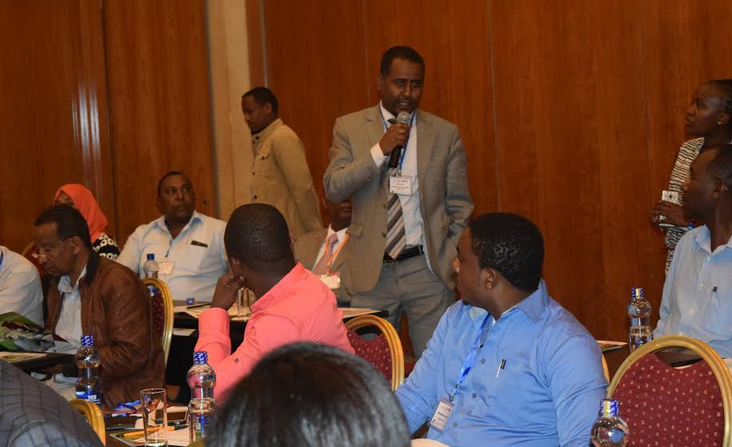Eastern Africa Grain Council (EAGC), with support of USAID’s East Africa Trade and Investment Hub, Hosts Trade Facilitation Forum in Addis, Ethiopia.

Trade deals in terms of 51 contracts amounting to 275,000 MT estimated at USD, 55,000,000 were signed today at the Ethiopian capital for export of grains (maize and pulses) from Ethiopia to Eastern and the southern Africa. This took place at a Regional Grain Trade Facilitation Forum hosted by the Eastern Africa Grain Council (EAGC) in partnership with the Addis Ababa Chamber of Commerce & Sectoral Associations (AACCSA). The first multilateral grain trade facilitation forum was supported by USAID’s East Africa Trade and Investment Hub.
The forum brought together over 40 sellers of maize and other commodities from Ethiopia and over 50 buyers of grain from Kenya, Tanzania, Uganda, Rwanda, Burundi, Mozambique, Zambia, Malawi and Zimbabwe. The sellers comprised of cooperative unions, commercial farmers and grain exporters; buyers included maize millers, grain trading companies and national food reserve agencies.
The forum also created a platform for knowledge sharing and networking among the participants on trade and investment program between Ethiopia and eastern & southern Africa countries, with a focus on increasing regional trade.
Presently, the eastern and southern Africa region is experiencing a scarcity of rainfall and drought conditions leading to a shortage in availability of food grains, including maize and pulses. The situation has concerned the authorities to the extent that some have initiated interventions restricting exports. Some grain traders and processors have also had their operations affected due to the shortage of grains. In the recent harvest season, Ethiopia experienced a bumper harvest estimated at over 4,000,000 MT of maize in addition to beans and other pulses.
“EAGC is gunning her efforts to ensure efficient and sustained trade amongst grain players within the eastern and southern Africa. This is through corporate engagement and facilitation of collaborative platforms of both governments and the private sector, which include Business-to-Business (B2B), Government to Government (G2G) and Business to Government (B2G) linkages,” said EAGC Executive Director, Gerald Masila.
Preliminary estimates from the State Department of Agriculture (SDA) notes that imports from Uganda, Tanzania, and Ethiopia will be about 295,000 MT, 360,000 MT, and 1,400 MT, respectively, through June 2017, with imports from Uganda and Tanzania expected to be higher than normal due to anticipated below-average 2016 short rains, and an average 2017 long rains harvest in Kenya.
Regionally, governments have notably observed increased benefits from trade competitiveness, which is evident through removal of cross-border trade barriers. Facilitation of cross-border trade is a key driver to national economic development.
Efficient and coordinated trade facilitation will ensure increased trade competitiveness amongst grain players at national, regional and international level. Consumers will as a result experience increased supply of grains from Ethiopia to meet the high demand. The forum held will also enhance economic cooperation and integration amongst the eastern and southern countries through trade.
This post was shared by Titus Kisangau;
- Program Officer: MIS and Communications
- Tel: +254 703 610 989
- Email: tkisangau@eagc.org
- Official Web: http://www.eagc.org/
[irp]
Do not miss our update on the financial year 2016/2017 report of Kenya Seed Company!
Leave a Comment